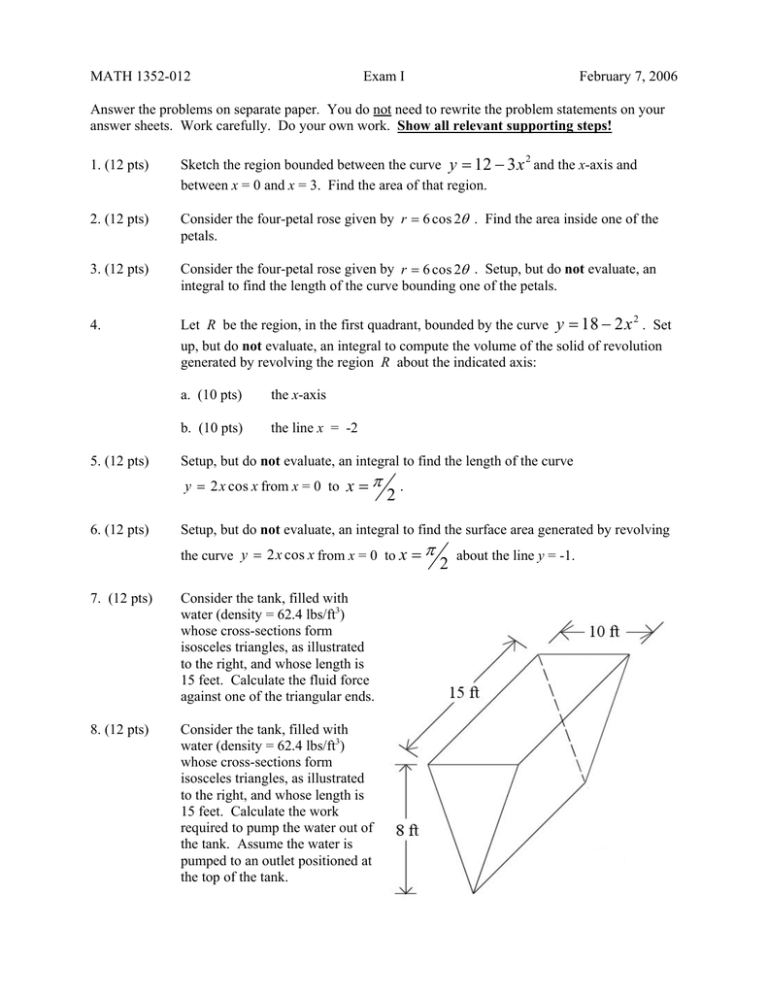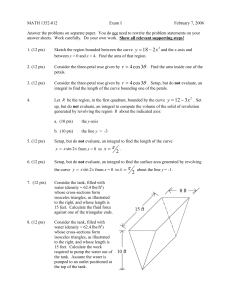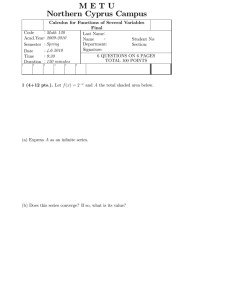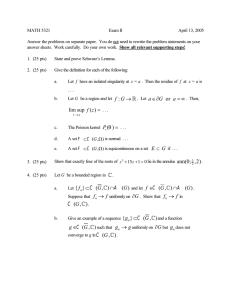MATH 1352-012 Exam I February 7, 2006
advertisement

MATH 1352-012 Exam I February 7, 2006 Answer the problems on separate paper. You do not need to rewrite the problem statements on your answer sheets. Work carefully. Do your own work. Show all relevant supporting steps! 1. (12 pts) Sketch the region bounded between the curve y = 12 − 3 x and the x-axis and between x = 0 and x = 3. Find the area of that region. 2. (12 pts) Consider the four-petal rose given by r = 6 cos 2θ . Find the area inside one of the petals. 3. (12 pts) Consider the four-petal rose given by r = 6 cos 2θ . Setup, but do not evaluate, an integral to find the length of the curve bounding one of the petals. 4. 5. (12 pts) 6. (12 pts) 2 Let R be the region, in the first quadrant, bounded by the curve y = 18 − 2 x . Set up, but do not evaluate, an integral to compute the volume of the solid of revolution generated by revolving the region R about the indicated axis: 2 a. (10 pts) the x-axis b. (10 pts) the line x = -2 Setup, but do not evaluate, an integral to find the length of the curve y = 2 x cos x from x = 0 to x = π 2 . Setup, but do not evaluate, an integral to find the surface area generated by revolving the curve y = 2 x cos x from x = 0 to x 7. (12 pts) Consider the tank, filled with water (density = 62.4 lbs/ft3) whose cross-sections form isosceles triangles, as illustrated to the right, and whose length is 15 feet. Calculate the fluid force against one of the triangular ends. 8. (12 pts) Consider the tank, filled with water (density = 62.4 lbs/ft3) whose cross-sections form isosceles triangles, as illustrated to the right, and whose length is 15 feet. Calculate the work required to pump the water out of the tank. Assume the water is pumped to an outlet positioned at the top of the tank. =π 2 about the line y = -1.






